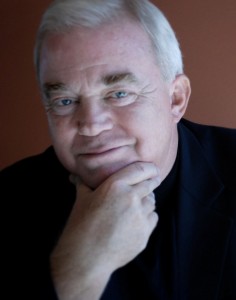The Rev. Jim Wallis and Dr. Albert Mohler, president of Southern Baptist Theological Seminary, went head to head Thursday night at Trinity Evangelical Divinity School outside Chicago in a debate over the hot topic of "social justice."
The debate hinged around the question, "Is Social Justice an Essential Part of the Gospel?" Wallis answered "yes" and Mohler answered "no".
There were, however, a few things that both men agreed upon:
- Justice is an attribute of God and therefore God's people must work for justice.
- True justice is not just individual but always has social implications. Therefore, a true definition of justice must include "social justice."
- In order for Christians to be faithful to the Great Commission they must make disciples and teach what Jesus taught, and that means teaching Christians to be workers for justice.
Where they disagreed was how to define the Gospel. Mohler argued that the Gospel is the story of Christ's death for our sins through subsitutionary atonement as articulated by the Apostle Paul. Wallis argued for an "integral" Gospel that both includes personal salvation and the restoration of societal relationships.
For Mohler, justice is a good work that Disciples of Christ should do, but it isn't the Gospel. For Wallis, you can't make that kind of strict separation.
What was most telling about the disagreement between the two men was their discussion of Luke 4. Mohler argued the passage should be understood in light of how he interpreted the preaching and teaching of Paul and the other apostles. This means that when Jesus said that he came to bring good news to the poor that good news was personal salvation.
Wallis argued that yes, personal salvation is one part of that good news, but that the other part is the Kingdom of God breaking into the world and transforming societal relationships as well. When the Gospel is proclaimed, it is good news for a poor person's entire being, community and world -- not just his or her soul.
First, it was encouraging to hear Mohler spend a lot of time emphasizing that working for justice is essential to fulfillment of the Great Commission. Throughout the night he repeated his concern that a lot of Churches are REALLY bad at making disciples who actually do the things Jesus told us to do. As the president of one of the largest seminaries in the world, it will be interesting to see if he is able to train a generation of pastors who will do things differently. My concern is that he is missing the connection between his theology and the failure of Christians to actually do justice.
The reality is that not all churches in this country, or across the world, are bad at doing justice. In fact, many American Hispanic and Black evangelical churches are doing it well all the time. When you look at trends in global evangelicalism you see churches across the world that are absolutely committed to justice.
While there are exceptions, a lot of the churches that are bad at justice tend also to be largely white and middle class. I would contend that one of the biggest differences between churches that do justice well and the ones that don't is how they answer the question at the heart of last night's debate. If you say that the Gospel is first and foremost about an individual atonement for personal sins, you are quite likely to end up with a church full of people who don't want to go any farther.
If a individual person is told that the Gospel is entirely about what it can do for her, she is quite likely to ignore the subsequent commands to actually do the hard work of following Jesus. It's what Bonhoeffer would call "cheap grace."
Christians who want to embrace salvation but who aren't interested in becoming real disciples is a problem that is clearly vexing to Mohler.
I think part of the solution is a broader definition of the Gospel and a full affirmation of Luke 4. The Gospel is good news to the poor because it offers both personal salvation and the kind of lasting societal transformation in which care for poor people is actually provided.
Christ's atonement for our sins is the Gospel's true -- yet incomplete -- story.
The Gospel is fully proclaimed only when that story is told and the people of God are working to help the Kingdom of God become on Earth as it is in Heaven.
 Tim King is Communications Director for Sojourners. Follow Tim on Twitter @TMKing.
Tim King is Communications Director for Sojourners. Follow Tim on Twitter @TMKing.
Got something to say about what you're reading? We value your feedback!

